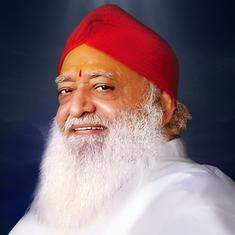Rakesh Asthana appointment: ‘Filing PILs has become a career,’ Centre tells Delhi High Court
He was appointed as the Delhi Police chief just four days before he was set to retire as the director general of the Border Security Force on July 31.

The Centre on Monday told the Delhi High Court that filing public interest litigations has become a “career and industry” in itself, while defending the government’s decision to appoint Rakesh Asthana as the police commissioner of the national capital.
A bench of Chief Justice DN Patel and Justice Jyoti Singh was hearing a public interest litigation filed by lawyer Sadre Alam, challenging Asthana’s appointment as Delhi Police chief just four days before he was set to retire as the director general of the Border Security Force on July 31.
“PIL is an industry,” said Solicitor General Tushar Mehta, representing the Centre. “It is a career by itself, which was not envisaged by the Constitution. Some citizens of this country have a desire to run the government.”
Mehta claimed that such citizens sought to “fulfil their desires” by filing public interest litigations and pointing out what they thought was wrong with certain appointments and policies. “It is for elected government to decide,” he added.
On the other hand, the petitioner pointed out that the Centre’s decision to appoint Asthana as the Delhi Police chief violated a Supreme Court order
“The judgment [Prakash Singh v. Union of India] is saying minimum residual tenure of six month [after superannuation] should be there,” Alam’s lawyer BS Bagga said. “Here, four days before the retirement, the appointment is made. This is bad in law.”
Asthana did not have a minimum tenure of six months left in his service as well as no Union Public Service Commission committee was formed for appointing him, according to the conditions laid down for appointment in the verdict. Asthana was also not appointed for a minimum of two years of service.
The Delhi High Court has reserved its order in the case after hearing arguments from all the parties.
The Centre for Public Interest Litigation has also challenged Asthana’s appointment. The non-governmental organisation’s advocate Prashant Bhushan has pointed out that Alam’s petition is “copy-paste” of his client’s plea.
Earlier in September, the Centre had told the Delhi High Court that Asthana was appointed as the police commissioner of the national capital in “public interest”.
In an affidavit, the government said that Delhi has been witnessing law and order as well as policing problems that have national security and cross border implications.
Asthana’s appointment had also drawn criticism from Delhi ruling’s Aam Aadmi Party and the Congress. On July 29, the Delhi Assembly passed a resolution opposing his appointment.
Asthana had also served as the special director of the Central Bureau of Investigation, where his name cropped up in a major controversy related to a bribery case in 2018. However, he was cleared of all charges in February 2020.









